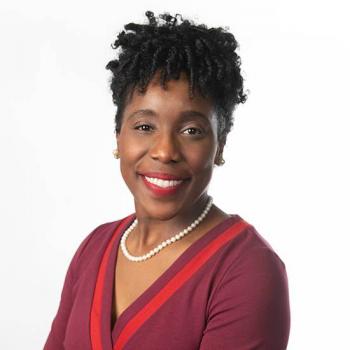Urban Studies program uses Nashville to examine challenges, opportunities of big cities
Lipscomb's College of Leadership & Public Service is training leaders to make an impact in Tennessee.
Kim Chaudoin |

With more than half of the world’s population living in urban areas, the Lipscomb College of Leadership & Public Service’s undergraduate program in urban studies helps prepare students for the challenges and opportunities of big cities.
“The human experience is shaped and formed by the organization of economic, social and cultural activities in the communities in which they live,” explains Michelle Steele, CLPS associate dean of academics and director of the urban studies program. “A flourishing future depends on our understanding of the complexity of cities and the possibilities they offer.”
Launched in 2018, Lipscomb’s urban studies program combines academic approaches with real-world experience to understand cities, suburbs and other settlements. It examines questions such as what factors make a city struggle or thrive, how individuals shape cities and how they shape individuals, and how to live harmoniously together in urban spaces.

Michelle Steele
“The questions that we seek to explore are foundational to the program and help students to understand cities and urban life and lead through these challenges no matter their career or educational goals,” says Steele. “Whether you’re a student majoring in healthcare, business, communications, public administration, law, economics, the context in which you study will likely be urban. Studying UBN prepares you to meet the challenges of your own discipline, understanding the people, where they come from and how they are impacted.”
Lipscomb’s location in Nashville, a metro area with a population of nearly 2 million, is a primary case study for students.
“Nashville is a complex city and serves as a great classroom for students,” says Steele. “Through the program they will traverse its intricate political, social and economic terrain, and gain hands-on experience with its diverse leaders and neighborhoods.”
Steele says the curriculum was shaped by public officials, neighborhood activists and business owners. The program’s interdisciplinary study of cities and urban contexts which draws on fields including sociology, history, geography, urban planning, political science, sustainability and data science as well as aids students in analyzing issues faced by urban areas and creating blueprints for a stronger future.
Throughout the program, students are deeply immersed in the issues facing the increasingly urban world population and explore the way their beliefs intersect with the challenges of urban life. Students learn research and analytical skills, communication, planning, community development and problem-solving all in the context of ethics and Christian values. They also complete an internship and research project which provides practical, real-world experience.
“We are preparing grounded leaders for public service, entrepreneurial ventures and nonprofit impact,” says Steele. “In Lipscomb’s urban studies program, students will have opportunities to live out their faith in a community that extends beyond Lipscomb’s campus. We are building bridges, crossing highways and connecting people.”
May Hartness, who graduated in May 2021 with a degree in law, justice and society, pursued a minor in urban studies. It was through that experience she was inspired to make a difference in her own community. In December 2019, Hartness organized a Sleep in the Square event to raise funds to support local charities that work with the unhoused population in Nashville as well as to raise awareness of the homelessness crisis in the world.
“Around the time that I was getting involved in the urban studies program, I was also becoming really involved with nonprofits focusing on the unhoused population in Nashville,” recalls Hartness. “Through my involvement in the urban studies program, I felt more competent to speak on those subjects and was equipped to go into the community and learn about the unhoused population in Nashville.Moving forward, I want to take what I know about cities and about how they treat their people to inform what I do professionally and in my community.”
Initially, Hartness enrolled in the introduction to urban studies course with little enthusiasm for attending. But that soon changed after her first class meeting with Steele as her professor. Hartness says Steele challenged students to “deconstruct the things we thought we knew were unlike so many experiences that I’ve had before.”
“The way that she teaches about gentrification, and walks you through specific areas in Nashville that have been affected by predatory development, or predatory infrastructure and things of that nature, has allowed me to see the city with such new eyes,” admits Hartness. “It has also made me feel such a connection to the city of Nashville, because I feel like I really understand it. I want to do what I can to contribute to making it a better place to live. And although I know I won't be the only one who can make a difference, Dr. Steele made me feel like I can. It's a really amazing program. I'm super thankful.”